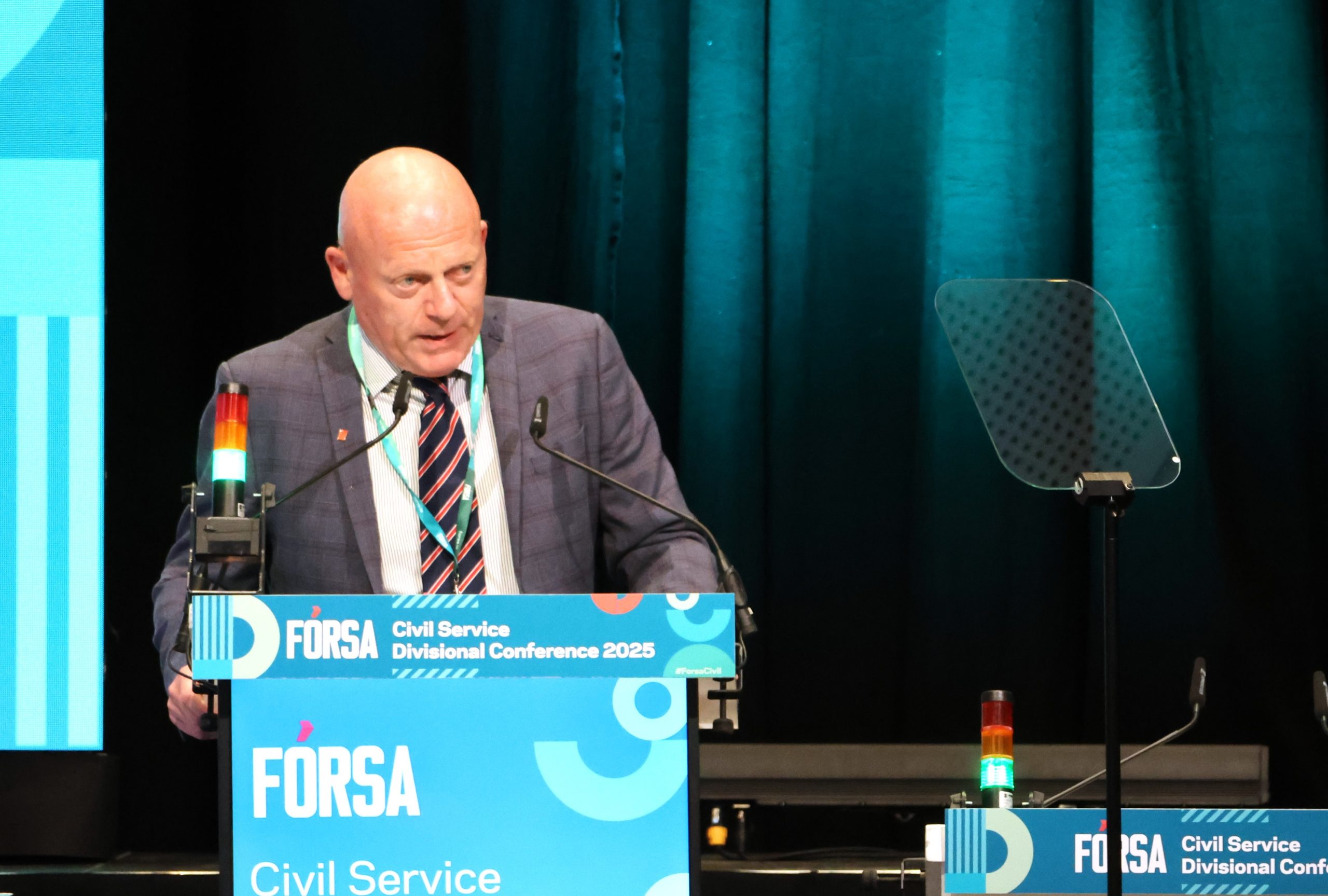Delegates at Fórsa’s Civil Service divisional conference, which opened in Galway this evening (Wednesday), have unanimously supported a motion calling on the union to insist that any future review of blended working, including that anticipated in the Programme for Government, must be underpinned by “a rational, jointly agreed framework of analytics.”
Fórsa’s Civil Service division said any review should also evaluate a broad range of factors, including public service delivery outcomes, workforce productivity, environmental impact, quality of life and caregiving flexibility.
Addressing the motion, Fórsa deputy general secretary Éamonn Donnelly said: “What we’re looking for is a mature discussion based around analytics, about the benefits – or otherwise – to the worker, to the workplace, to the employer, to productivity, to climate, to traffic congestion and wellbeing.
“Blended working has proven benefits that cannot be ignored. Workers, the public, and the environment are better served by an evidence-led approach—not arbitrary decisions,” he said.
Mr Donnelly also commended members for their unified response to unilateral attempts to change blended working arrangements in February.
Fórsa member Gary Fagan told delegates that blended working had become an essential part of how many in the Civil Service operate: “It’s our responsibility to ensure that these arrangements are secured in the long term. It’s working for members, it’s working for service and it’s working for the State. We must stand for evidence-based policies, not a rushed return to outdated ways.”
Fórsa member Cathal Kelly cited survey research by his own union branch, which found four-fifths of those with caring responsibilities, if they were required to work an additional day in the office, would have to make changes to care provision arrangements in the morning before traveling to work. Most respondents said additional office-based work would have a negative impact on their productivity.
A recent study by the Global Institute for Women’s Leadership at King’s College London and King’s Business School illustrates changing public sentiment. It found that just 42% of workers would comply with a five-day return-to-office requirement, down significantly from 54% in early 2022.
Mr Donnelly said the study was part of a growing body of research that confirms blended working is no longer a temporary response to crisis but a permanent feature of modern employment: “What employer places a higher value on staff spending time commuting to and from the office than working productively outside of the office?”
Mr Donnelly added that today’s meeting of the Civil Service General Council included a discussion on blended work and analytics, and that the Department of Public Expenditure, NDP Delivery and Reform (DPENDR) is considering engagement in a process on that basis. He urged delegates to back the motion in order to send a “clear message” to the department.
In her opening address to conference, Civil Service Cathaoirleach Helen Linehan said: “From the outset, Fórsa made clear that remote and flexible work must not be treated as a pandemic-era quirk, or a managerial favour to be withdrawn at whim.
“Blended work is a structured, negotiated feature of our work, rooted in modern, evidence-based understandings of productivity, work-life balance and organisational effectiveness.
“Why would any employer seek to reverse these arrangements except to reinforce old-fashioned ideas about management as a form of control, and other outdated ideas about modern working life?”
Join a union that wins. Join Fórsa.

